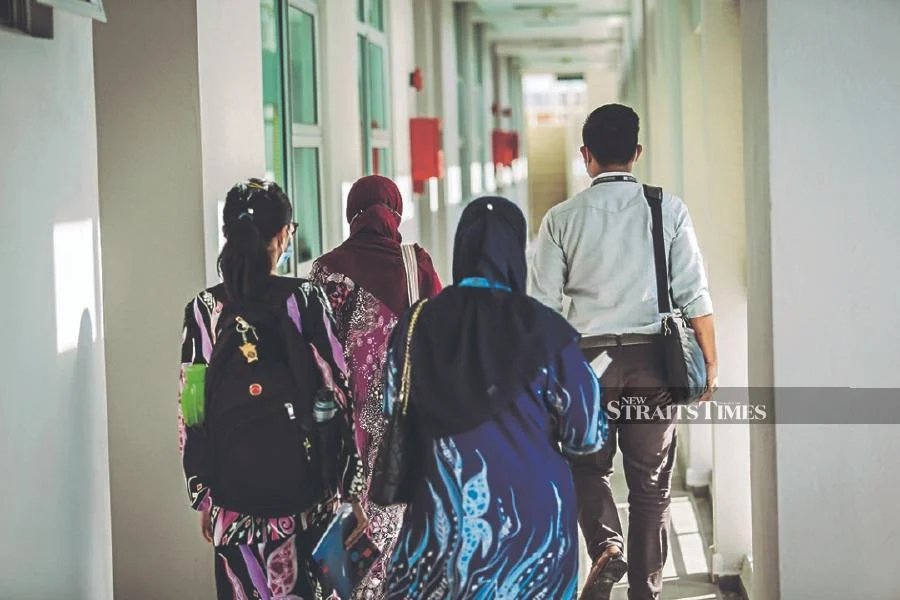
Slashing pensions a brave movebut Malaysia government risks‘political suicide’, say analysts
June 25, 2024
Personal loans top reason for bankruptcy
June 25, 2024It’s great if you have a home in the kampung (village) away from the hustle and bustle of city life, to enjoy a peaceful retirement. But even that may not be an option if the kids are schooling or pursuing tertiary education. Again, you may be forced to stay put in the city or town.
If you have a fully paid-up home or an apartment, you escape the burden of rising rents. If you have another home under your name, then you may earn an income.
If you have invested in an enterprise, then you may receive a recurring income. But businesses go up and down — the very nature of enterprise risk that you sign up to when you start a business, or join forces with others.
If you’re retiring in 2030, you will join the retiree ranks as Malaysia officially becomes an ageing nation. In six years, Malaysia’s population aged 60 years and over will make up 15% or more of the total population.
In the information accompanying the 2023 dividend announcement, EPF reminded us that Malaysia is fast ageing. By 2043, it would have transitioned into an aged nation; and super aged by 2057.
To many preparing to retire, the forced savings during our active working years make up a good part of our retirement plan. What is the EPF? In its own words, it is, first and foremost, a retirement fund mandated to safeguard members’ savings for their future retirement needs and well-being.
However, anecdotal examination of numbers tells us that a good number of Malaysians won’t waltz into retirement, but rather see themselves shoved into that category, financially ill-prepared.
We repeat what we quoted in this same column last week. Only one in five of EPF’s total members have reached basic savings goals, as tagged by the fund. Beginning 2019, the basic savings quantum — the number they need to accumulate when they hit 55 — was set at RM240,000. This would be equivalent to a monthly retirement income of RM1,000 for 20 years or 240 months, from age 55 to 75.
What about the rest? They may still have time to catch up, and bump up their forced savings in the EPF. Even then, imagine living on RM1,000 a month? You have yet to take inflation into account.
Of course, some economists and analysts tell us that EPF is not the only avenue that one needs to look at when we talk about retirement.
When commenting on the introduction of EPF’s third account, an economist recently told Bernama: “We have policies on education, healthcare, entrepreneurship and financial assistance in the form of subsidies, cash transfers, scholarships, grants, and microfinancing, among others, that will provide the right platform for Malaysians to lead better lives.
“These policies are governed by various ministries and government agencies. Therefore, we need to adopt a broader perspective on economic development.”
True. EPF is definitely not the one and only factor when you retire in Malaysia, but it plays a major role for many.
One thing is certain. Retirement is scary for those ill-prepared. In Malaysia, it is a ticking time bomb. It is not just about enough money in the pocket, but so much more.
Population ageing is the 21st century’s dominant demographic phenomenon, according to one study on global demography of ageing. The phenomenon of population ageing, which is unprecedented in human history, brings with it sweeping changes in population needs and capacities, with potentially significant implications for employment, savings, consumption, economic growth, asset values and fiscal balance, it added.
At the same time, ageing populations force nations to confront the problem of an increasing number of mentally incapacitated elderly, highlighted another study. Neurologic disorders such as dementia, depression and strokes are common for the elderly and often cause loss of mental capacity, it said. Once you step into that domain, you are faced with issues like guardianship and decision-making by the guardians.
There is also the issue of health and long-term care. Some elderly persons live relatively free from chronic illness, but others can live for years with chronic illnesses that once proved fatal, captured yet another report. It added that medical devices improve mobility, resulting in increased demand and a wider range of needs.
In a speech at an EPF-related forum in 2017, Datuk Abdul Rash- eed Ghaffour, then deputy governor of Bank Negara Malaysia (BNM), noted that a majority of Malaysians lacked long-term financial planning, and only 40% of them were financially ready for retirement. What caught people’s attention were the next set of figures, that three out of four Malaysians would be hard-pressed to save RM1,000 for emergency needs.
Things have not changed much. The ground is as precarious as it was seven years ago. In fact, the havoc wrecked by the COVID-19 pandemic would have worsened the situation on the ground.
One of the key solutions is to bump up our incomes. For a long time now, the nation has been stuck in what is called the middle-income trap.
Abdul Rasheed is now the governor of the central bank. In its annual report for 2023, released two months ago, BNM discussed the importance of the nation transiting to a high-income nation.
“We continued to advocate for a more comprehensive and efficient social protection system in Malaysia to ensure the well-being of the people in the long term. This included to streamline social assistance programmes to ensure those who need the support receive it. We also advocated for extending the coverage of the Malaysian private retirement savings scheme to all individuals, including workers in the informal sector (eg self-employed individuals).
“We also continued to advocate for structural reforms aimed at boosting household incomes, especially amid the rising cost of living issues. This included generating opportunities for high-skilled jobs through quality investments in new growth areas and supporting initiatives to improve wage growth via upskilling and enhanced labour productivity,” according to the report.
As we can see, defusing the ageing time bomb on our hands requires solutions on multiple fronts.
Habhajan Singh is the corporate editor of The Malaysian Reserve.




